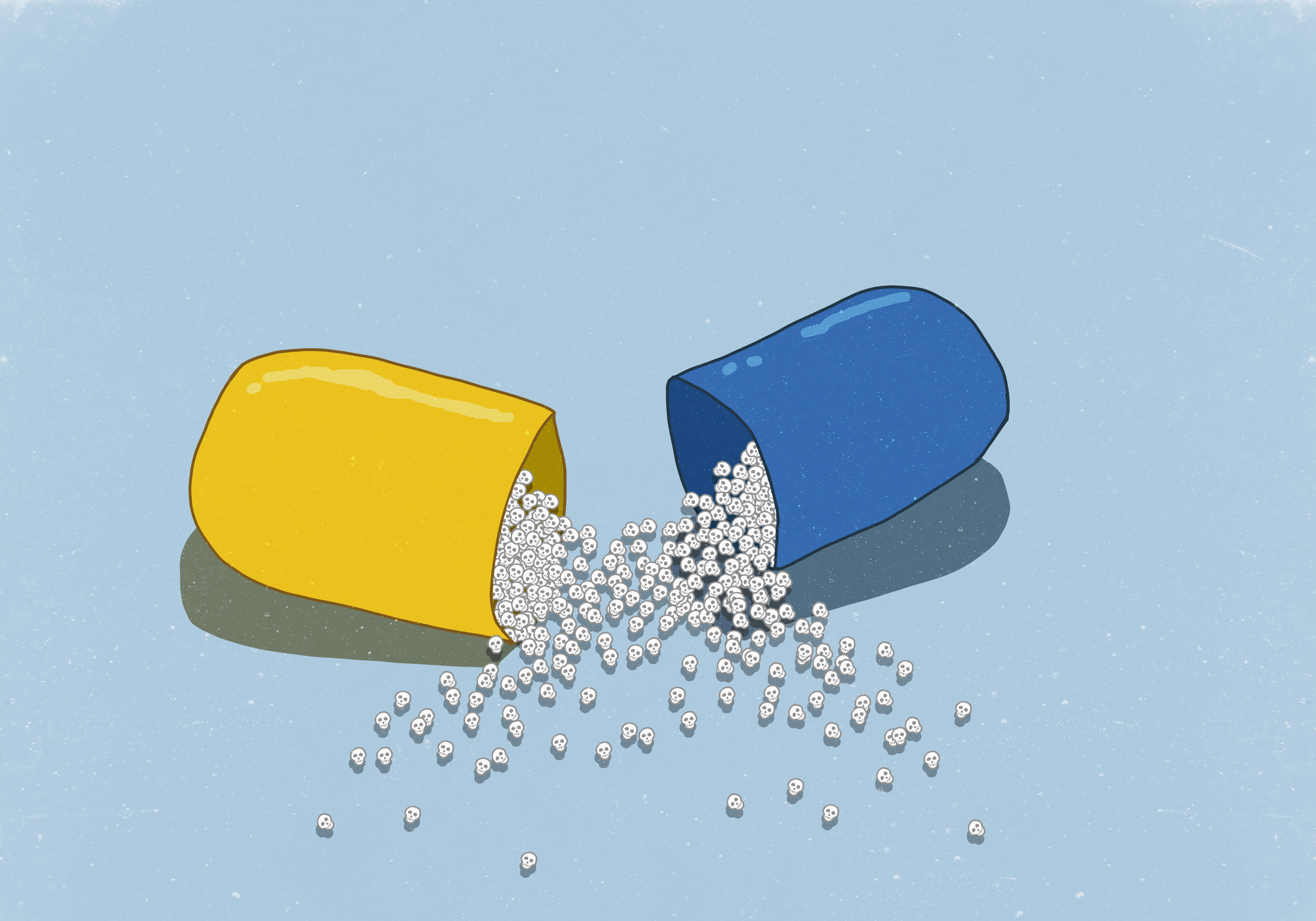
Credit: Malte Mueller/Getty Images
*This piece was originally published on May 17th, 2019*
From the moment that Judith Grisel started drinking alcohol at age 13, she was hooked. For the next ten years, Grisel suffered from addiction, as she used drugs from marijuana to opiates to psychedelics.
As a recovering addict and neuroscientist, Grisel learned that she was especially vulnerable because she was genetically predisposed to addiction. (She is one of many who are susceptible to the disease.) Grisel, a professor of psychology at Bucknell University and the author of “Never Enough: The Neuroscience and Experience of Addiction,” explains the effect of illicit drugs on the brain and what makes them so addictive.
Three Takeaways:
- Using drugs is not new. Humans and even insects, have a natural drive to seek mind-altering substances to affect the way we perceive and experience the world around us. But Grisel says that today’s drugs can be far more powerful - 1000 times more powerful, in some cases - which is contributing to the crisis we are facing in the country and around the world.
- As we consume more drugs - many of which are now created synthetically with higher potency levels - our brains are adapting to them and becoming more resistant to their effects, leading people to seek out even more powerful drugs to satisfy their addictions.
- Grisel believes we should not look for a medicinal “cure” for addictive behavior. Instead, informing people about the ill effects of consuming drugs and addiction is a better way to tackle the crisis we are facing.
More Reading:
- In an opinion piece for The Washington Post, Judith Grisel expresses her concerns about the addictive properties of marijuana, and its impact on adolescent brains.
- The latest season of Marketplace’s “The Uncertain Hour” looks at how drug policies introduced in the past continue to impact the overdose crisis today.
- Voters in Denver recently chose to decriminalize magic mushrooms. Find out how elected officials are planning to shape policies following the decision.
- In China, clinical trials for deep brain stimulation (DBS) surgeries are underway to treat opioid addiction.

